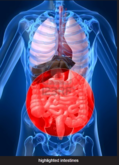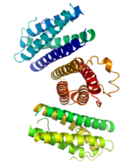Biosimilars/Research
Standardizing clinical trials for biosimilars
Researchers from the University of Massachusetts, USA and Newcastle University, UK argue that clinical trial design should be standardized for future studies of biosimilars [1]. Indeed, they argue that a ‘standard clinical trial design be adopted for all biosimilars of a particular [originator biological] in a given disease’.
Study design for biosimilar trials
Biosimilars have been available in the field of rheumatology since 2015. In light of this fact, researchers from the National Health Service (NHS) Foundation Trust and King’s College London, discuss study design for biosimilar trials [1].
NOR-SWITCH study finds biosimilar infliximab not inferior to originator
Results of a two-year phase IV study have shown that Celltrion Healthcare (Celltrion)’s infliximab biosimilar (Remsima, CT-P13) is not inferior to the originator biological Remicade.
Biosimilars versus generics
Since 2015, biosimilars have been available in the field of rheumatology. Researchers from the National Health Service (NHS) Foundation Trust and King’s College London discuss how such biosimilars differ from the more traditional generics [1].
Biosimilars: clinicians and regulators need to talk
In Europe, there is a clear gap between the regulatory decisions that govern biosimilar approval and the recommendations of medical societies. The fact that the views of medical societies, whose members are the physicians that will prescribe biosimilars, disagree with those of regulators, may hold back biosimilar uptake.
Use of biosimilar anti-TNF in Australia
With the advent of biosimilar anti-tumour necrosis factor (TNF), new options have opened up for the treatment of inflammatory bowel disease (IBD) in Australia. Author Richard B Gearry of the University of Otago, Christchurch, New Zealand, discusses what needs to be taken into consideration when physicians prescribe anti-TNF products [1].
Positive phase III results for Mylan’s biosimilar pegfilgrastim
Results of a study of Biocon and Mylan’s comparing Biocon/Mylan’s biosimilar pegfilgrastim (MYL-1401H) to the originator (Neulasta) has ‘demonstrated equivalent efficacy’, according to Mylan [1].
Biosimilars in rheumatology
In 2015, the rheumatology community saw the emergence of the first biosimilars onto the market. Biosimilars are not new to the medical community at large, having been on the market in the European Union (EU) since 2006. However, their arrival into the field of rheumatology is new and, according to researchers from the National Health Service (NHS) Foundation Trust and King's College London, ‘comes with great anticipation’ [1].
Switching may not be suitable for patients with immunogenicity
Results of a study of antibodies to infliximab comparing both the originator (Remicade ) and biosimilar (Inflectra/Remsima; CT-P13) versions has shown ‘cross-immunogenicity’ between the originator and biosimilar in patients with rheumatic diseases [1].
Efficacy and safety of biosimilar infliximab in children with IBD
Researchers from Birmingham Children’s Hospital presented results from a study of the use of the infliximab biosimilar CT-P13 (Remsima/Inflectra) in children with inflammatory bowel disease (IBD) [1].













